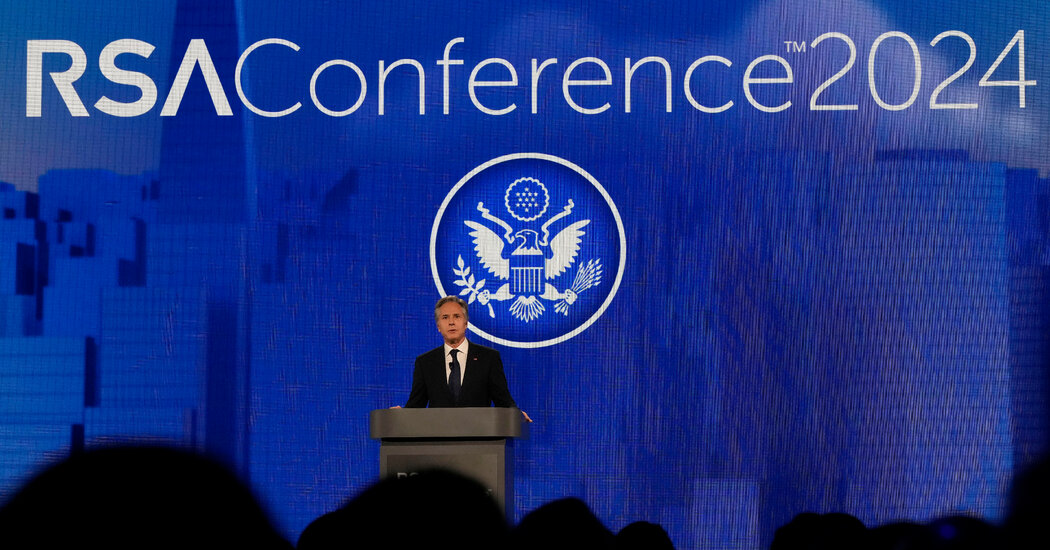The new U.S. approach to cyberthreats comes as early optimism about a “global internet” connecting the world has been shattered.
American and Chinese diplomats plan to meet later this month to begin what amounts to the first, tentative arms control talks over the use of artificial intelligence.
A year in the making, the talks in Geneva are an attempt to find some common ground on how A.I. will be used and in which situations it could be banned — for example, in the command and control of each country’s nuclear arsenals.
The fact that Beijing agreed to the discussion at all was something of a surprise, since it has refused any discussion of limiting the size of nuclear arsenals themselves.
But for the Biden administration, the conversation represents the first serious foray into a new realm of diplomacy, which Secretary of State Antony J. Blinken spoke about on Monday in a speech in San Francisco at the RSA Conference, Silicon Valley’s annual convention on both the technology and the politics of securing cyberspace.
“It’s true that ‘move fast and break things’ is literally the exact opposite of what we try to do at the State Department,” Mr. Blinken told the thousands of cyberexperts, coders and entrepreneurs, a reference to the Silicon Valley mantra about technological disruption.
